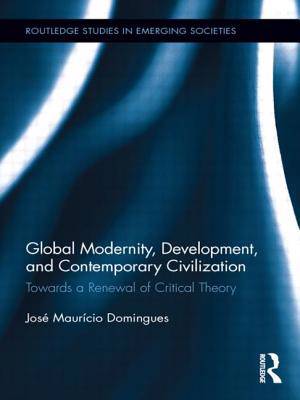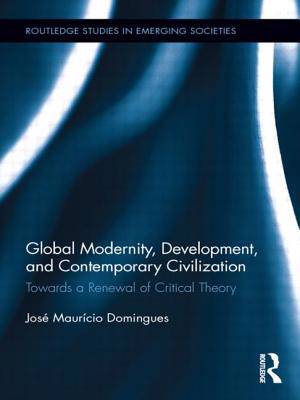
- Afhalen na 1 uur in een winkel met voorraad
- Gratis thuislevering in België
- Ruim aanbod met 7 miljoen producten
- Afhalen na 1 uur in een winkel met voorraad
- Gratis thuislevering in België
- Ruim aanbod met 7 miljoen producten
Global Modernity, Development, and Contemporary Civilization
Towards a Renewal of Critical Theory
José Maurício DominguesOmschrijving
This book investigates modern global civilization, offering an alternative to post-colonial theories and the "multiple modernities" approach (as well as the civilizational theory linked to it). It argues that modernity has become a global civilization that is heterogeneous and intertwined with other civilizations, and also aims at a renewal of critical theory that is not US-centric and Eurocentric, focusing instead on China, South Asia (India) and Latin America (Brazil). Dealing with the themes of centre-periphery relations, complexity (including culture and religion), democracy and emancipatory possibilities, this book is based on general theoretical ideas such as collective subjectivity, the interplay of memory and creativity, and the concept of "modernizing moves," so as to deal with historical contingency.
Specificaties
Betrokkenen
- Auteur(s):
- Uitgeverij:
Inhoud
- Aantal bladzijden:
- 284
- Taal:
- Engels
- Reeks:
Eigenschappen
- Productcode (EAN):
- 9780415848718
- Verschijningsdatum:
- 23/05/2013
- Uitvoering:
- Paperback
- Formaat:
- Trade paperback (VS)
- Afmetingen:
- 152 mm x 229 mm
- Gewicht:
- 381 g

Alleen bij Standaard Boekhandel
Beoordelingen
We publiceren alleen reviews die voldoen aan de voorwaarden voor reviews. Bekijk onze voorwaarden voor reviews.












